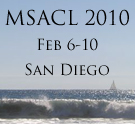| Charge-based separation of peptides prior to LC-MS analysis has been hampered by long run times, poor reproducibility and the presence of components such as detergents and carrier ampholytes that interfere with mass spectrometric (MS). Proteomic research would benefit by a workflow solution for discrete fractionation of peptides by their isoelectric point with minimal sample handling prior to MS analysis. Protein Forest Inc. has developed the digital ProteomeChip® (dPC®) that traps peptides in acrylamide gel features based on charge, with a pH resolution of less than 0.1 units and run times less than one hour. The dPC® is composed of 41 gel plugs each at a specific pH, creating a discrete 2.0 pH gradient across the dPC with a resolution of 0.05 pH units. This workflow employs buffers and conditions that have been designed to be MS compatible, eliminating the need for post-separation sample clean-up and dramatically reducing artifacts introduced by the separation process. Studies were performed using a tryptic digest of A431 cell lysate. More than 3,500 peptides were found using three dPC®s with a combined pH range of 3.5-8.0 were found. Briefly, a 50µg aliquot of an A431 cell lysate tryptic digest was diluted to 600µl with running buffer and loaded into dPC running chambers with dPC pH ranges of 3.5-4.5, 4.2-6.2 or 6.0-8.0. These dPC®s were run using appropriate voltage protocols for each pH range. Following fractionation, dPC gel plugs were harvested in 5-plug pools and extracted for 1 hour with 50% acetonitrile, 0.2% formic acid. Extracts were concentrated to 50µl using a SpeedVac® and analyzed by MS. LC-MS/MS was performed on a Thermo LTQ-XL linear ion trap, equipped with a C18 column running an acetonitrile/water gradient at a flow rate of 300 nl/min. Data were searched using Sequest® IPI human database. Reproducibility was evaluated by comparing identity and position of specific peptides in multiple dPC® runs. In this report, we present a simple, fast, and reproducible MS compatible workflow for peptide analysis. |
|



